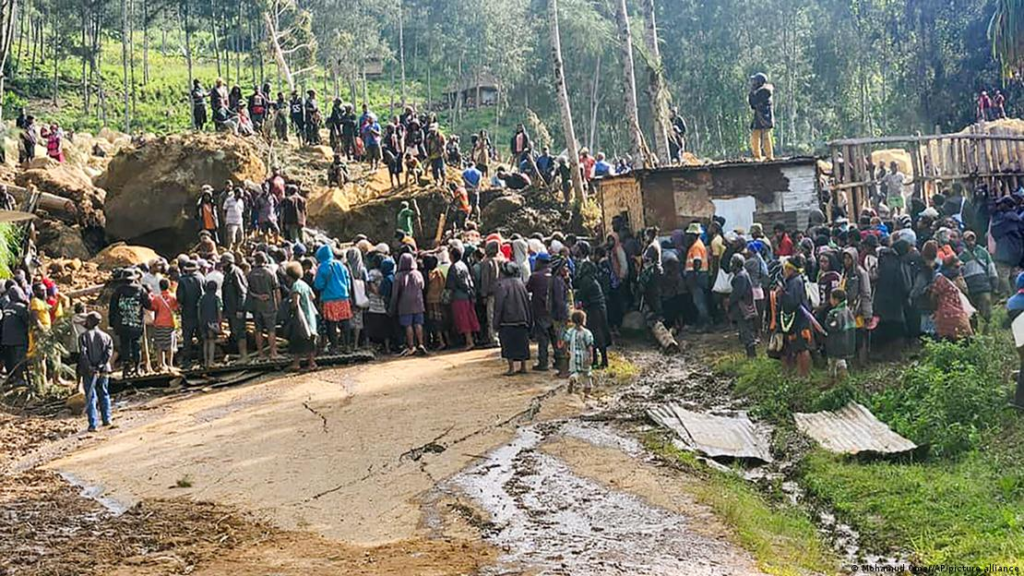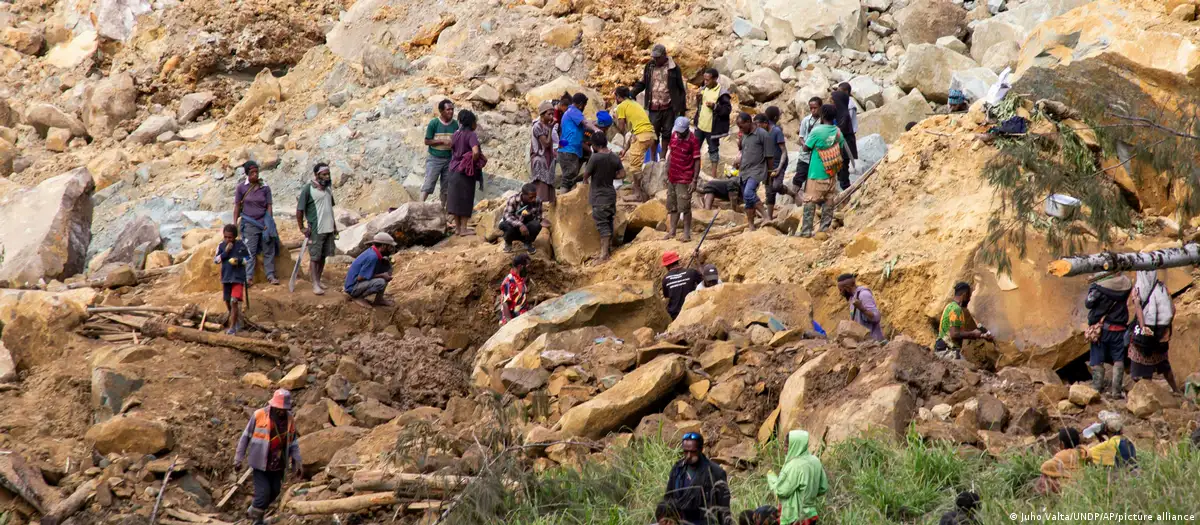Some 7,900 people in Papua New Guinea have been ordered to evacuate the path of what authorities say is a still active landslide that has already buried an estimated 2,000 people.
Thousands of residents in Papua New Guinea have been ordered to evacuate the path of what authorities say is a still-active landslide on Tuesday, after parts of a mountain collapsed last week, burying over 2,000 people.
Enga province disaster committee chairperson Sandis Tsaka told the Reuters news agency that a state of emergency has been declared across the disaster zone and a neighboring area, with a combined population of between 4,500 to 8,000. He said that the number of people asked to evacuate was around 7,900.
Aid agencies estimate more than 1,000 people have already been displaced by the catastrophe.
Meanwhile, military personnel have set up checkpoints and are helping move residents to evacuation centers, he said.
“The landslide area is very unstable. When we’re up there, we’re regularly hearing big explosions where the mountain is, there is still rocks and debris coming down,” Tsaka said. “The landslide is still active, as people are digging through the rocks, more is still coming down.”

Papua New Guinea, which has one of the wettest climates in the world, has been experiencing shifting rainfall patterns potentially linked to climate change which research says could exacerbate the risk of landslides.
‘Not equipped’ to deal, official says
An estimated 2,000 people remain buried in Friday’s landslide in the region. Only five bodies have been recovered so far.
Residents said they have been using shovels and bare hands to search for survivors.
“This was an area heavily populated with homes, businesses, churches and schools, it has been completely wiped out. It is the surface of the moon — it is just rocks,” said Tsaka.
He expressed anguish at the under-resourced government’s inability to handle the disaster. “I am not equipped to deal with this tragedy,” Tsaka admitted.
Relief teams have been trickling in and heavy equipment has been slow to arrive at the difficult-to-access Enga region. Treacherous rain and local tribal unrest have further slowed down the work, forcing the military to escort the convoys of relief teams.
Low chance of survival
It is now “very unlikely” that more victims of Friday’s landslide will be found alive, a UN official told the French AFP news agency.
“It is not a rescue mission, it is a recovery mission,” UNICEF Papua New Guinea’s Niels Kraaier said. “It is very unlikely they will have survived.”
The UN had initially put the possible deaths at more than 670.
While tragedy unfolds on the mountainside, Papua New Guinea Prime Minister James Marape is likely to face a no-confidence motion on Tuesday as parliament resumes after a three-month break.
The opposition party has nominated Rainbo Paita, a defected cabinet minister, to become the country’s new Prime Minister.








